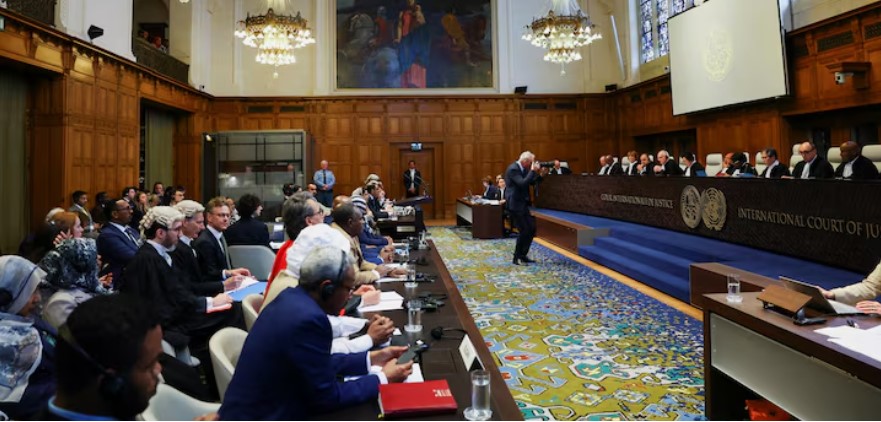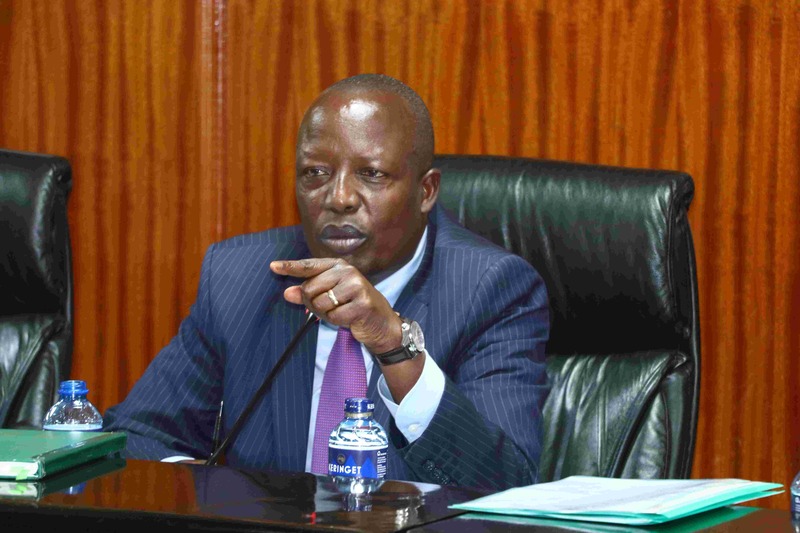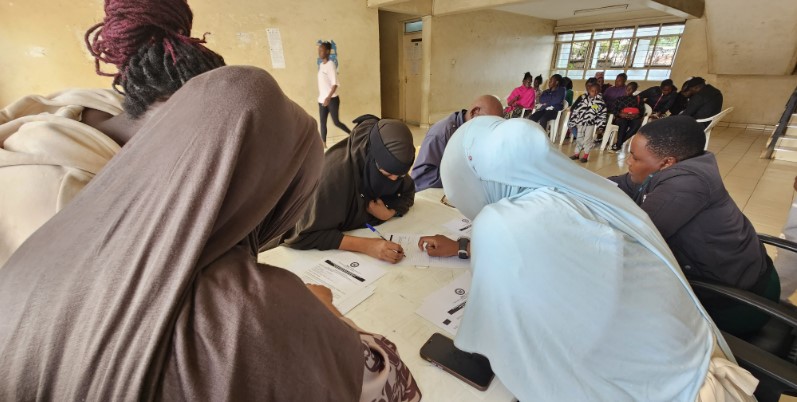PSC grants academic waivers for chiefs, assistant chiefs in marginalised areas- Murkomen

Murkomen stated that the appointment of Chiefs and Assistant Chiefs is guided by the Revised Scheme of Service for National Government Administrative Officers (October 2015), which explicitly sets the minimum qualifications.
All positions in public service are subject to specific minimum academic requirements during recruitment and selection. However, the Public Service Commission grants academic waivers upon request from the Ministry.
This was Interior Cabinet Secretary Kipchumba Murkomen's response to a question by Tiaty MP William Kamket on whether the Ministry could review the academic qualifications for appointing Chiefs and Assistant Chiefs in marginalised areas.
The MP also inquired whether the Ministry could consider broader affirmative action to recruit experienced individuals for these positions, even if they do not meet the academic qualifications.
More To Read
- Murkomen orders fresh vetting of police reservists in Kerio Valley amid new security reforms
- Murkomen vows justice for Ang'ata Barikoi victims as state cracks down on violence instigators
- Murkomen vows tough action against scrap metal vandals
- Murkomen: Gachagua and Muturi not under investigation over secrets Act breach
- Government launches nationwide operation to reclaim grabbed public land
- Probes into brutal killing at KNH ongoing as state vows justice, enhanced hospital security
At the same time, he sought clarification on measures in place to ensure that Chiefs and Assistant Chiefs appointed to administer specific Locations and Sub-Locations are actual residents of those areas, enhancing governance and conflict resolution.
Murkomen stated that the appointment of Chiefs and Assistant Chiefs is guided by the Revised Scheme of Service for National Government Administrative Officers (October 2015), which explicitly sets the minimum qualifications.
In that case an Assistant Chief II must have a Kenya Certificate of Secondary Education (KCSE) mean grade of C-(Minus) or its equivalent from a recognised examining body; atleast 30 years of age, be a resident of the sublocation, good in communications skills, have a police clearance certificate and another in computer applications.
The grade is C plain for a Chief II position, whose candidate must be atleast 35 years of age and with a diploma in either Public Administration, Management, Social Work, Community Development, Education, Governance, Conflict Management or its equivalent from a recognised institution.
"Whereas a review of the current schemes of service may not be needed, special considerations are normally made in special circumstances to ensure that marginalised communities are not discriminated against but have equal access to Chiefs and Assistant Chiefs positions," he told the legislators during a plenary session at Parliament.
Murkomen clarified that while a review of the current scheme of service may not be necessary, special considerations are made in unique circumstances to ensure marginalised communities are not discriminated against in accessing Chiefs and Assistant Chiefs positions.
"In cases where advertised positions do not attract qualified candidates, the Ministry, on a need basis, requests the Public Service Commission for academic waivers to fill vacancies in marginalised areas," he told legislators during a plenary session in Parliament.
The CS emphasised that it is mandatory for applicants seeking appointment as Chiefs and Assistant Chiefs to be residents of the respective Locations or Sub-Locations.
He noted that Deputy County Commissioners, as Chairpersons of Sub-County Recruitment and Selection Panels, are required to conduct due diligence and vet applicants’ places of residence. This process ensures that candidates recommended for appointment are bona fide residents and individuals of good standing in society.
Additionally, the National Intelligence Service (NIS) conducts comprehensive background checks on all shortlisted candidates before interviews.
The vetting reports include the applicant’s known place of residence; personal details, education, and professional qualifications; employment history and character assessment; relationship with the community and clan dynamics; and any involvement in criminal activities.
Murkomen reiterated that these measures are crucial in ensuring that Chiefs and Assistant Chiefs effectively serve their communities, maintain public trust, and enhance governance.
Top Stories Today
- ICJ throws out Sudan's case accusing UAE of supporting RSF
- Autopsy: Kasipul MP Charles Were died from five gunshot wounds
- Police seek to hold officer, 3 others in Kasipul MP murder for 30 days
- Kenya among 10 African countries to share Sh64.67bn health fund
- Bobi Wine’s bodyguard appears in court after alleged abduction by Muhoozi
- National campaign launched to tackle GBV and femicide
- Four police officers charged with murder of Baby Samantha Pendo
- Pope Francis's popemobile set to become health clinic for Gaza children
- Millers increase unga prices as maize supply tightens
- Court to rule on halt of prison recruitments, suspension of budget-making process
- State blames underdevelopment for insecurity in 23 counties
- Pakistani Bank Al Habib announces exit from Kenya after 7 years
- Baby Pendo murder case: 11 officers to be charged with crimes against humanity
- Somali coffee and tea: Why milk makes all the difference
- From chapati rolls to canjeero pizza: How families are reinventing snack time
- Rights groups decry injustice as 8 officers cleared in Baby Pendo case
- Kamukunji residents participate in NG-CDF public consultations
- No cause for panic over unga prices, state says amid rising food costs
- Political leaders condemn shoe-throwing incident on Ruto in Migori
- Rwanda in talks to receive migrants deported from US













































